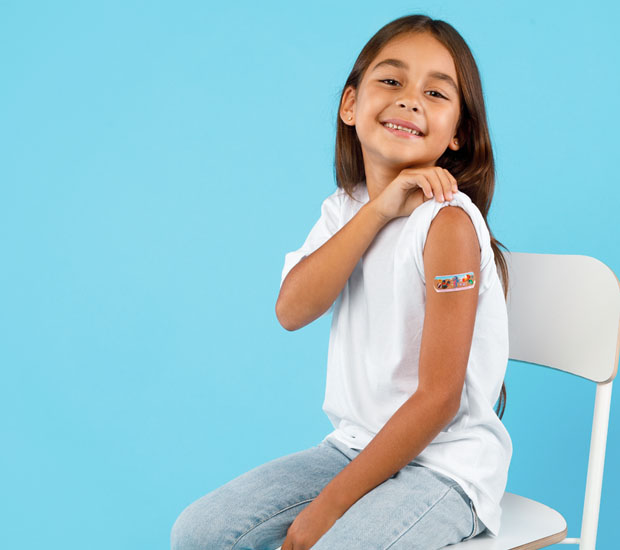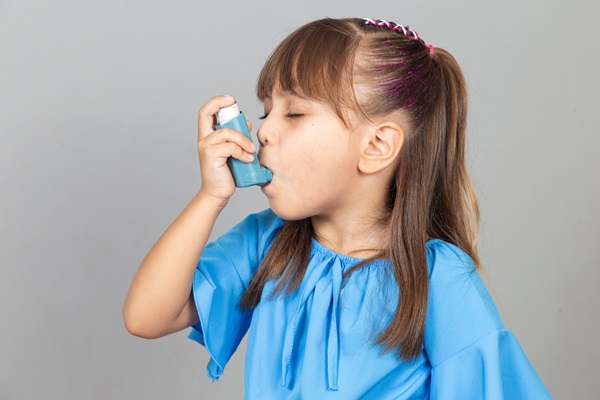Children’s ImmunizationZachary, LA
Immunization is one of the most effective and essential public health measures in the world. It protects children from dangerous and potentially life-threatening diseases by boosting their immune systems to fight infections. Vaccines have helped control or eradicate many infectious diseases, including smallpox, polio, and measles. For children, immunization begins shortly after birth and continues through their early years, offering protection during their most vulnerable stages of life.
At TKZ Pediatrics, we offer children’s immunizations for all of our pediatric patients. Our team can address any and all parental concerns and answer questions about the importance of vaccines, common vaccines given to children, vaccine safety, the immunization schedule, and what to expect after immunization. To learn more about these visits or schedule an appointment, call 1-225-420-1549 today.
Importance of Immunization for Children
Immunization is vital in preventing diseases that can lead to severe illness, disability, or death. Before vaccines were widely available, diseases like diphtheria, whooping cough, and polio caused widespread suffering and fatalities. Vaccination not only protects the individual child but also helps to protect the community through herd immunity. When most children in a community are vaccinated, it is less likely for diseases to spread, thus safeguarding those who cannot be vaccinated due to medical reasons.
By getting children immunized, parents and guardians contribute to the overall health of society. The World Health Organization (WHO) and the Centers for Disease Control and Prevention (CDC) stress the importance of maintaining high vaccination coverage to prevent the resurgence of previously controlled diseases. In addition, immunization helps reduce healthcare costs associated with treating preventable diseases and their complications.
“By getting children immunized, parents and guardians contribute to the overall health of society.”
Common Vaccines Given to Children
Several vaccines are recommended for children to protect them from a range of serious diseases. Some of the most common vaccines include:
- MMR (Measles, Mumps, and Rubella): This vaccine protects children from three contagious viral diseases. Measles can cause pneumonia, encephalitis, and even death, while mumps and rubella can lead to serious complications like meningitis and congenital disabilities.
- DTaP (Diphtheria, Tetanus, and Pertussis): This vaccine shields children from three bacterial infections. Diphtheria affects the throat and airways, pertussis (whooping cough) causes severe coughing, and tetanus affects the muscles and nerves.
- Polio Vaccine: Polio is a viral infection that can lead to paralysis or even death. Vaccination has been key to nearly eradicating this disease worldwide.
- Varicella (Chickenpox): The varicella vaccine prevents chickenpox, a common childhood illness that can cause an itchy rash and, in severe cases, pneumonia or encephalitis.
- Hepatitis B Vaccine: This vaccine prevents hepatitis B, a viral infection that affects the liver and can lead to chronic liver disease or liver cancer.
These vaccines are part of a child’s routine immunization schedule and are typically administered during the first few years of life. Booster shots are also given later in childhood to maintain immunity.
“Several vaccines are recommended for children to protect them from a range of serious diseases”
Vaccine Safety and Side Effects
Vaccines are rigorously tested for safety and efficacy before being approved for use. National and international health organizations, including the CDC, WHO, and the U.S. Food and Drug Administration (FDA), ensure that vaccines undergo extensive clinical trials and monitoring to guarantee their safety. Common side effects of vaccines are usually mild and may include fever, swelling at the injection site, or fatigue. Serious side effects are extremely rare, and the benefits of vaccination far outweigh any potential risks.
“National and international health organizations, including the CDC, WHO, and the U.S. Food and Drug Administration (FDA), ensure that vaccines undergo extensive clinical trials and monitoring to guarantee their safety.”
The Immunization Schedule
The immunization schedule outlines the recommended timing for vaccines in children. This schedule is carefully designed to protect children when they are most vulnerable to specific diseases. For example, newborns receive the hepatitis B vaccine shortly after birth, while vaccines for diseases like measles, mumps, and rubella are administered later when the child’s immune system can respond most effectively.
The typical children’s immunization schedule includes:
- Birth to 2 months: Hepatitis B, DTaP, Polio, Hib (Haemophilus influenzae type b), PCV (Pneumococcal Conjugate Vaccine), and Rotavirus.
- 2 to 6 months: Continuation of DTaP, Polio, Hib, PCV, and Rotavirus.
- 12 to 18 months: MMR, Varicella, Hepatitis A, and booster doses of previous vaccines.
- 4 to 6 years: Booster doses of DTaP, Polio, MMR, and Varicella.
- 11 to 12 years: HPV (Human Papillomavirus), Meningococcal vaccine, and a Tdap booster (tetanus, diphtheria, and pertussis).
Parents should work closely with healthcare providers to ensure their children stay up to date with the recommended immunization schedule. Missing or delaying vaccinations can leave children unprotected and increase the risk of outbreaks.
“The immunization schedule outlines the recommended timing for vaccines in children.”
What to Expect After Immunization
After receiving a vaccine, it is common for children to experience mild side effects such as pain at the injection site, a low-grade fever, or irritability. These side effects typically subside within a few days and are signs that the body is building protection. In rare cases, more severe allergic reactions may occur, but healthcare providers are trained to manage these immediately if they arise.
It is important to monitor a child after vaccination and provide comfort measures such as applying a cold compress to the injection site or giving a pain reliever as recommended by the healthcare provider. If a child experiences any unusual symptoms or prolonged side effects, it is advisable to contact the healthcare provider for further guidance.
“After receiving a vaccine, it is common for children to experience mild side effects such as pain at the injection site, a low-grade fever, or irritability.”
Questions Answered on This Page
Q. What is the importance of children’s immunizations?
Q. What are the most common vaccinations given to children?
Q. Are vaccines safe for children?
Q. What is an immunization schedule?
Q. What can I expect following children’s immunization visits?
Schedule a Visit Today
Children’s immunizations are available at our office. The TKZ Pediatrics team can provide essential information about children's immunization, emphasizing the importance of vaccines in protecting individual and public health. By following the recommended immunization schedule and relying on accurate information, parents can ensure that their children are protected from dangerous and preventable diseases. Call our office at 1-225-420-1549 to learn more or schedule an appointment.
Frequently Asked Questions
Q. Are vaccines safe for children?
A. Yes, vaccines are thoroughly tested for safety and monitored continuously after approval. Health organizations, including the CDC and WHO, rigorously evaluate vaccines to ensure they are safe for children. Mild side effects are common, but serious side effects are extremely rare.
Q. Why do children need so many vaccines?
A. Children need multiple vaccines because they are at higher risk for certain diseases, and their immune systems are still developing. Vaccines protect them from potentially life-threatening infections and help prevent the spread of diseases in the community.
Q. What happens if a child misses a vaccine?
A. If a child misses a vaccine, it is important to schedule a catch-up vaccination as soon as possible. Healthcare providers can help parents develop a plan to ensure the child is fully immunized without compromising their health.
Q. Can vaccines overload a child’s immune system?
A. No, vaccines do not overload a child’s immune system. Children's immune systems can handle the recommended vaccines without any issues. In fact, vaccines help strengthen the immune system by teaching it to recognize and fight specific diseases.
Q. Do vaccines contain harmful ingredients?
A. Vaccines contain ingredients that are safe in the amounts used. These ingredients include antigens, preservatives, and stabilizers, all of which are tested for safety. The amount of any substance in a vaccine is far below harmful levels and ensures the vaccine’s effectiveness and safety.





